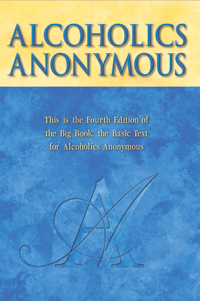

 |
The Doctor's Opinion |  |
Dr. Silkworth, who treated Bill W. and introduced the disease theory of alcoholism to him (page 7), validated his spiritual experience in the hospital (page 14) and recommended that Bill not preach to potential recruits (See Pass It On) writes an introduction to the book and fellowship Alcoholics Anonymous, singing the praises of its members: "You may rely absolutely on anything they say about themselves."
He provides a medical and physical description of alcohol addiction. The authors assert,"In our belief, any picture of the alcoholic which leaves out this physical factor is incomplete." It is thus part of the description of the alcoholic that helps make clear the three pertinent ideas in How It Works (page 60).
The doctor writes two passages which contain key phrases that are now part of the AA canon cited in meetings decades later:
Frothy emotional appeal seldom suffices. The message which can interest and hold these alcoholic people must have depth and weight...Dr. Silkworth then describes a few types of alcoholics who are different in their personality types and attitudes toward drinking, but who all share one common trait: after beginning they are unable to stop drinking due to the phenomenon of craving which all alcoholics exhibit, and which normal drinkers never do. This phenomenon is likened to an allergy in that the body's physical reaction to alcohol causes the craving, placing it beyond the control of the person's will. This idea of an allergic reaction to alcohol which produces a craving is central to the physical aspect of alcohol addiction. It underlines the belief that alcoholism is a disease and not a character issue. This physical aspect, along with a mental aspect called the alcoholic obsession or insanity described in More About Alcoholism, make those affected powerless over alcohol.Men and women drink essentially because they like the effect produced by alcohol. The sensation is so elusive that, while they admit it is injurious, they cannot after a time differentiate the true from the false. To them, their alcoholic life seems the only normal one. They are restless, irritable and discontented, unless they can again experience the sense of ease and com- fort which comes at once by taking a few drinks--drinks which they see others taking with impunity.
The doctor defends to the medical profession and others his faith in the fledgling fellowship then forming among some recovered alcoholics by asserting that modern medicine has yet to have a large effect on the problem of alcoholism. But the ideas put into practice by his former patient and others had already shown results, and were worthy of further investigation. He later gives personal testimony in the form of two remarkable stories of recovery from his own experience and recommends that the skeptical alcoholic should read the book and "though he came to scoff, he may remain to pray." (Page XXXII, Fourth Edition)